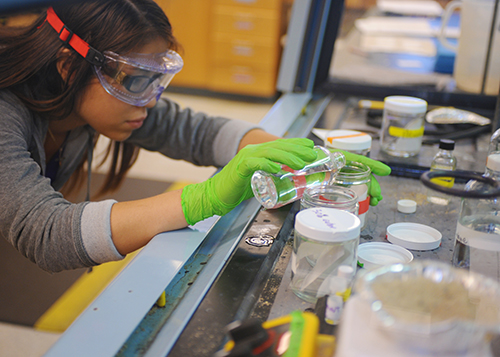Why Choose Principles and Processing of Novel Engineering Materials?
This engineering focus area provides students a competitive advantage at companies specializing in development and production of biomaterials, semiconductors, smart materials, and additive manufacturing. Available to both undergraduate and graduate engineering students, this four-course focus area cover topics in chemical vapor deposition, 3-D printing, synthesis and properties of biomaterials and polymeric materials, photovoltaics and energy storage materials.
Our graduates have gone on to work for top cosmetic companies, including:
- Global Foundries
- Corning
- Intel
- Fujifilm
New York City Location
Our New York City location provides opportunities for students to use the city as their classroom - visiting sites, speaking with successful alumni who work in the industry, as well as applying for internships at materials engineering companies.
What Will You Learn?
This program prepares students for various career pathways within the materials engineering industry, including research and development of smart and novel materials. Students will take courses in areas such as biomaterials, polymers, thin film deposition and additive manufacturing. Additionally, an understanding of the environmental, regulatory, safety and compliance aspects play a critical role in building up the skills set for a successful entry to this rapidly growing industrial sector.
Coursework
For the principles and processing of novel materials engineering option, graduate students will need to take the three required core courses (CHMG 707, CHMG 713, and CHMG 722) as well as the following four elective courses:
- Emulsion & Polymer Technologies (CHMG 737)
- Synthesis and Deposition of Thin Films (CHMG 773)
- Additivie Manufacturing: Technology, Materials and Applications (CHMG 774)
- Production and Application of Biomaterials (CHMG 775)
Laboratory Component
An essential component to the principles and processing of novel materials otpion is the hands-on approach to education. The Additive Mnufacturing Course will have an experimental component which includes training in the use of the following techniques:
- Lithography
- Material extrusion (i.e. 3-D printing)
- Sheet lamination
